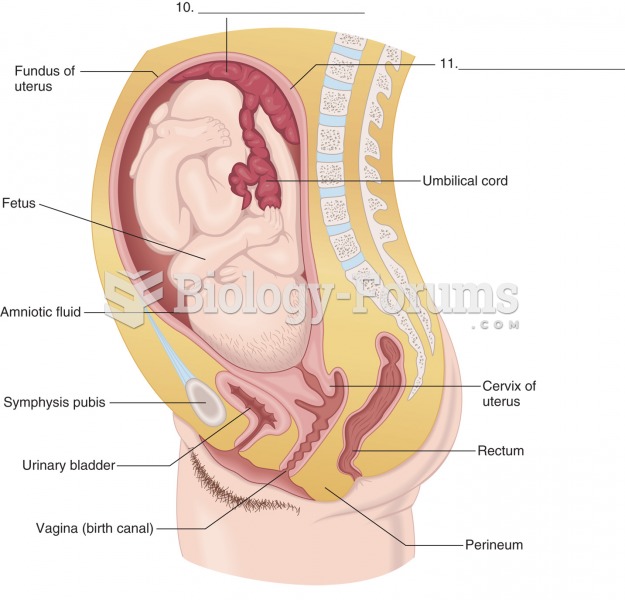|
|
|
Malaria was not eliminated in the United States until 1951. The term eliminated means that no new cases arise in a country for 3 years.
Hypertension is a silent killer because it is deadly and has no significant early symptoms. The danger from hypertension is the extra load on the heart, which can lead to hypertensive heart disease and kidney damage. This occurs without any major symptoms until the high blood pressure becomes extreme. Regular blood pressure checks are an important method of catching hypertension before it can kill you.
As many as 20% of Americans have been infected by the fungus known as Histoplasmosis. While most people are asymptomatic or only have slight symptoms, infection can progress to a rapid and potentially fatal superinfection.
Despite claims by manufacturers, the supplement known as Ginkgo biloba was shown in a study of more than 3,000 participants to be ineffective in reducing development of dementia and Alzheimer’s disease in older people.
Approximately 70% of expectant mothers report experiencing some symptoms of morning sickness during the first trimester of pregnancy.
 An oscillating needle 1 or 2 inches Hg below normal could indicate an incorrect air–fuel mixture ...
An oscillating needle 1 or 2 inches Hg below normal could indicate an incorrect air–fuel mixture ...
 Visual tracking of a pendulum by a normal control subject (top) and three schizophrenics. (Adapted ...
Visual tracking of a pendulum by a normal control subject (top) and three schizophrenics. (Adapted ...





